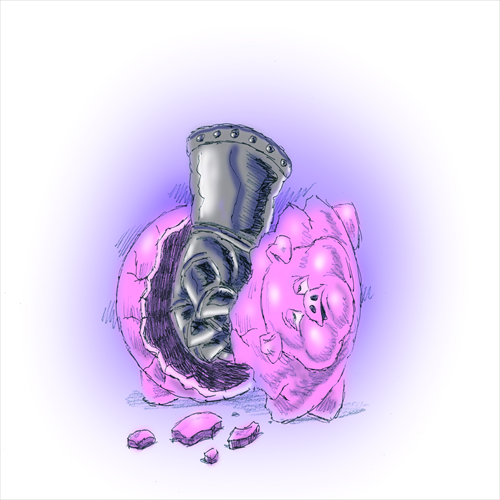Iron lady pioneered pragmatic approach to China’s changes

Margaret Thatcher, Britain's first female prime minister, died on Monday at her age of 87. Her death has drawn global attention. If we select the most influential politicians in the 20th century, she will definitely be on the list.
Some people hold that Thatcher's death marks the end of an era. For my part, it's better to say that Thatcher created a new era in her political career.
Thatcher and Ronald Reagan, former US president, were both representatives of the program of "Star Wars," through which they made the world's mainstream ideology dominated by the US and UK.
From this perspective, we are still living in this era in which the mainstream ideology was pioneered by politicians including Thatcher.
Thatcher also played an important role in the Sino-British relationship. There are some people who believe that transferring sovereignty over Hong Kong back to China was Thatcher's choice of last resort because of various pressures. However, this action is really proof of Thatcher's foresight.
After World War II, the relationship between China and the UK was quite special. Compared with other countries, the UK's campaign against China was weaker at that time. Due to Hong Kong, China and UK had been in contact during those years. Therefore, the UK knew more about China than other Western countries. Thatcher soon realized the significance of China's then reform and opening-up.
Thatcher was one of the first group of politicians who realized the prospects of China's rise. As early as the initial stage of China's reform and opening-up, she realized that China had already entered the fast lane of rapid development. She was confident in China's future development and used her actions to support it.
Thatcher was also the first Western leaders to propose that the West should press China to engage in international system, instead of excluding it. There were ideological reasons for this. Thatcher hoped "peaceful evolution" in China through the country's engagement in the international system. However, Thatcher's proposal also created external conditions for China's reform and opening-up.
Thatcher has been described as an "iron lady" because of her tough approach and uncompromising political style. During the negotiations between the Chinese and British governments over Hong Kong, both Thatcher and then Chinese leader Deng Xiaoping took a tough attitude. However, throughout the negotiations, Thatcher stuck to the basic principle that the two countries should have dialogues instead of confrontations.
This principle later has become a basic point in the relationship between China and the UK, and even between China and the whole of Europe. Thatcher's significant role in the development of the Sino-British relationship is beyond doubt.
In her book Statecraft: Strategies for a Changing World published in 2003, Thatcher expressed doubt about whether China would become a superpower. She said the question depended on China's own will and choice. Thatcher's view eased Western people's worries about China.
To judge a politician, we should not only listen to their words, but also analyze their deeds.
As a right-wing politician, Thatcher was theoretically hostile to communist ideas.
However, on the other hand, she also realized that China's development was inevitable and the development of China was of significance to the UK.
Historically speaking, as long as any politician can recognize these development trends, he or she is a friend to China anyway.
The article was compiled by Global Times reporter Shu Meng based on an interview with Tian Dewen, director of Department for European Society and Culture Studies of Institute of European Studies, Chinese Academy of Social Sciences. shumeng@globaltimes.com.cn
Counter point: UK economic decline is Thatcher’s most lasting legacy